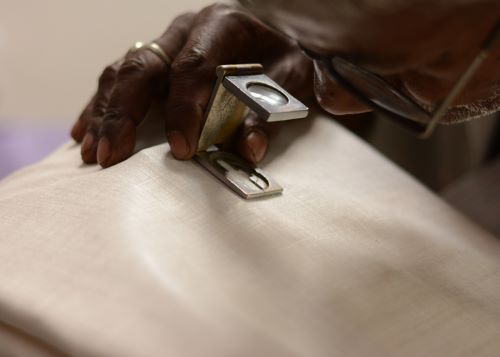
6 Supply Chain Challenges In Sustainable Fashion & Textile Industry

Sustainable Supply Challenges Must Be Overcome To Achieve Sustainable Development. Improvement Of Sustainability By Making Changes To The Supply Chain Is A Fairly New Concept. It Is Believed That In Most Typical Consumer Companies, The Carbon Emissions Are Contributed By Its Supply Chain. This Also Means That It’s The Starting Point To Initiate Working On Those Sustainability Milestones.
However, It Takes More Than Trying To Be "Environmentally Friendly". Thus We Will Discuss The Several Challenges That Brands Today Have To Face To Establish A Sustainable Supply Chain.
Anuprerna advocates for transparency, accountability, and ethical practices throughout the supply chain. We emphasize the need for responsible sourcing of materials, fair treatment of workers, reduction of waste and pollution, and minimization of carbon emissions in transportation.
What is a Sustainable Supply Chain?
A Sustainable Supply Chain is one where the environmental and human impact of the products is taken into account, throughout their production across the supply chain. This means that from sourcing of sustainable resources to production, storage, logistics etc are all done in an eco-responsible manner and is environmentally friendly and sustainable.
The aim of such a system is to minimize environmental damage from variables like energy exhaustion, water consumption and waste production while having a positive impact on the people and communities in and around their operations. Global issues such as green house emissions, climate change, water scarcity, deforestation problems, human rights, and fair trade practices are all taken into consideration in Sustainable Supply Chain management.
Challenges of Supply Chain Sustainability:
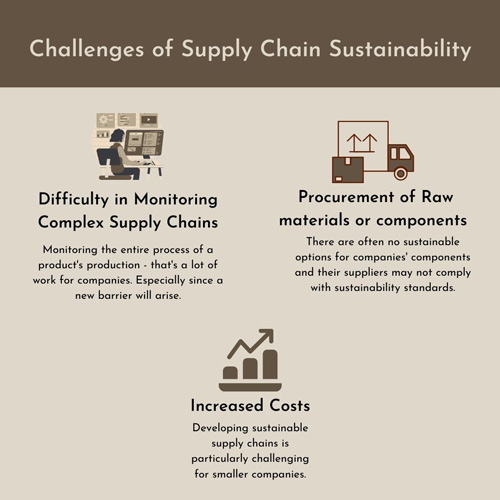
1. Increased Costs: The upfront costs of setting up a sustainable supply chain network can be very high for smaller companies. Such costs also impact the price of the product and become difficult for some companies to justify to many customers who may not be sufficiently aware.
2. Procurement of Raw materials or components: Many companies find that there simply aren’t sustainable options for components or that their suppliers may not be compliant with sustainable standards.
To ensure the sustainability of our Fabrics and Products, we source them responsibly from suppliers who comply with sustainable standards. We are also working on a organic Khadi fabric collection, which requires us to source certified organic cotton fibre and then spun and woven into organic khadi. We have described the process here.
3. Difficulty in Monitoring Complex Supply Chains:
In a complex supply chain network where the stages are interconnected and interdependent, even a small change in a simple process can have a ripple effect throughout the network. Adding to this, keeping track of all sustainability measures in such a supply chain becomes a very daunting task and is a major hurdle faced by companies.
Explore more Challenges of Supply Chain Sustainability
4. Lack of Alignment in Responsibility and Sustainability Framework Across Supply Chains:
Without the management's commitment, willingness, and support toward sustainability, it becomes impossible for the organization to adopt sustainable practices.
5. Logistics: Another big challenge in achieving a sustainable supply chain is to set up eco friendly logistics systems that promote sustainable development.
6. Lead times: Sustainable processes may involve a longer lead time and it becomes difficult for companies to justify it to clients.
With an artisanal handmade system, this has been a major obstacle which we are able to standardize to a large extent due to long & trustful relations with the artisans. Furthermore, we love to work with people with an understanding of the slow sustainable industry.
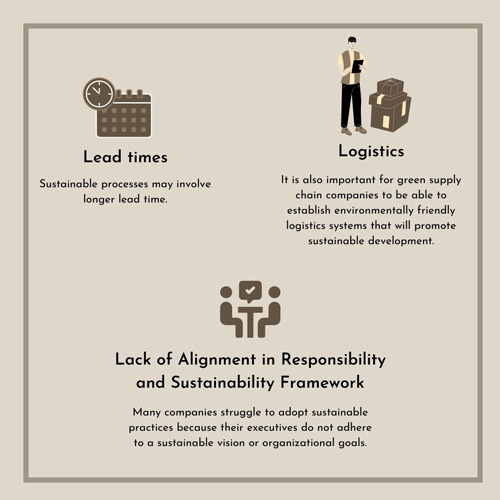
Four Steps to a More Sustainable Supply Chain:
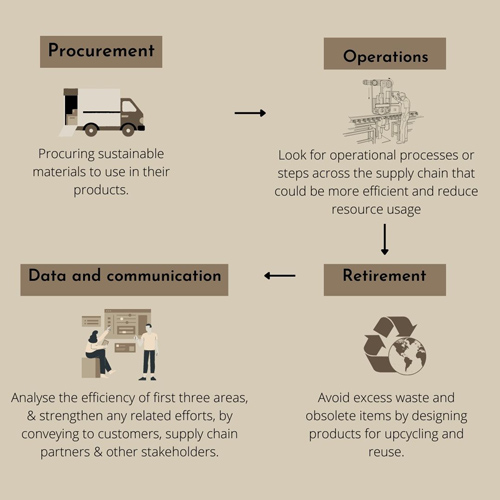
Being situated at the heart of the artisan clusters and our direct working relations with artisans have helped us create a transparent handmade Textile supply chain.
We have also taken it one step further to now offer End-to-End Customization, to facilitate all the above from the yarn stage to finished products be it fabrics, garments, homeware or accessories. We are thus able to reduce the supply chain burden, meanwhile also upholding transparency through sharing behind the scenes snippets from the complete process of dyeing, processing, weaving, stitching and more.
In End-to-End Customization, we provide to facilitate all the above from the yarn stage to finished products be it fabrics, garments, homeware or accessories. We are thus able to reduce the supply chain burden, meanwhile also upholding transparency through sharing behind the scenes snippets from the weaver clusters, dyeing facility and even the tailoring unit.
related questions
What are the key principles of sustainability?
arrow_drop_downKey principles of sustainability include reducing environmental impact, promoting social equity, ensuring economic viability, conserving resources, and fostering resilience for future generations.
How can supply chains be more sustainable?
arrow_drop_downSupply chains can be more sustainable by optimizing transportation routes, reducing waste, promoting fair labor practices, sourcing materials responsibly, using renewable energy, and implementing transparent and traceable processes.
What are the three pillars of sustainability in a supply chain?
arrow_drop_downThe three pillars of sustainability in a supply chain are environmental, social, and economic aspects.
What are the key areas of sustainable supply chain?
arrow_drop_downKey areas of sustainable supply chains include: 1.Sourcing and procurement 2.Manufacturing and production processes 3.Transportation and logistics 4.Packaging and waste management 5.Social responsibility and labor practices 6.Energy and resource efficiency 7.Collaboration and transparency throughout the supply chain
More Blogs

performance metrics: analyzing banana fiber fabric properties for textile design
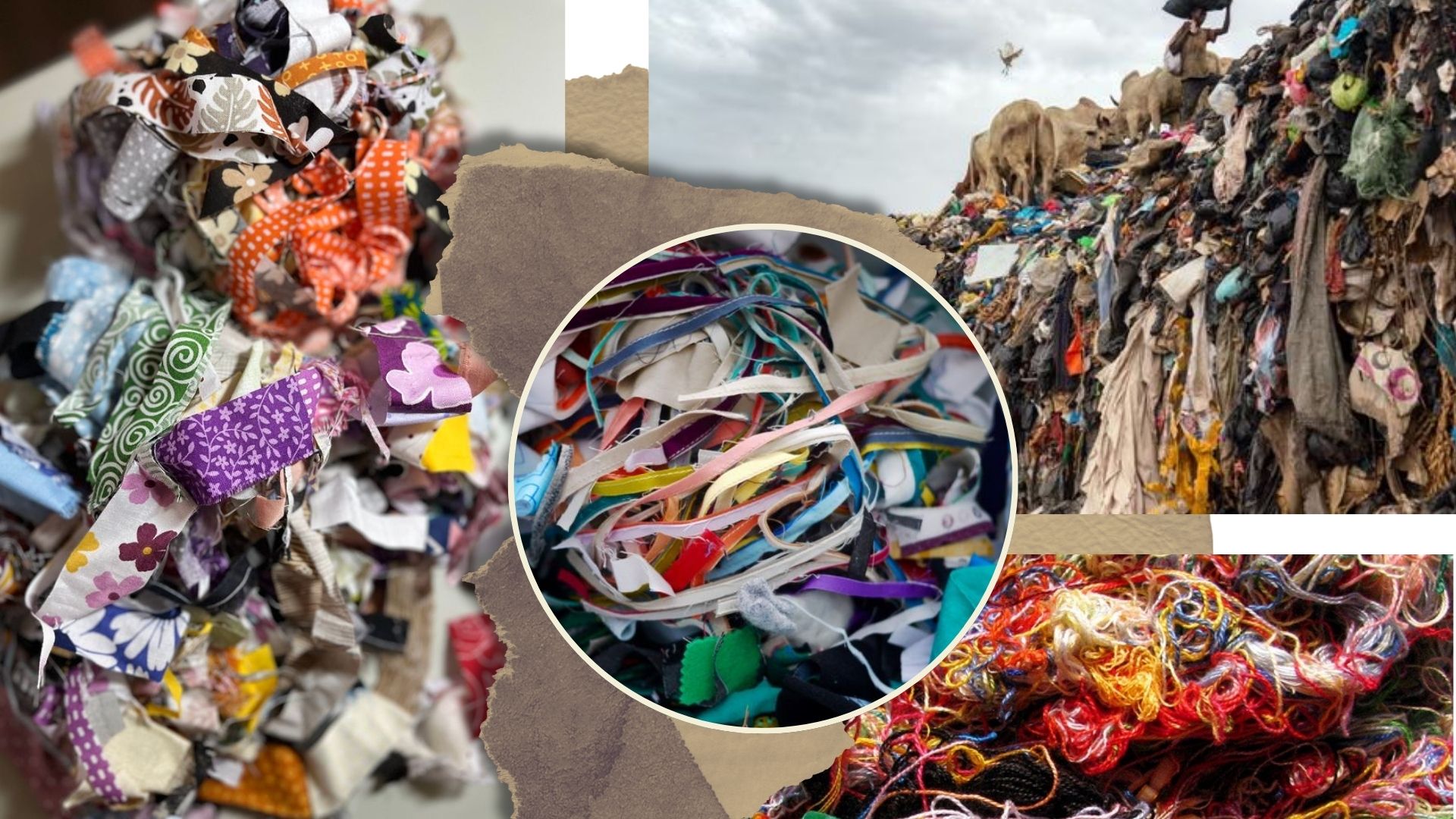
the scrap fabric solution, from clutter to creation

the art of sustainable recyclability
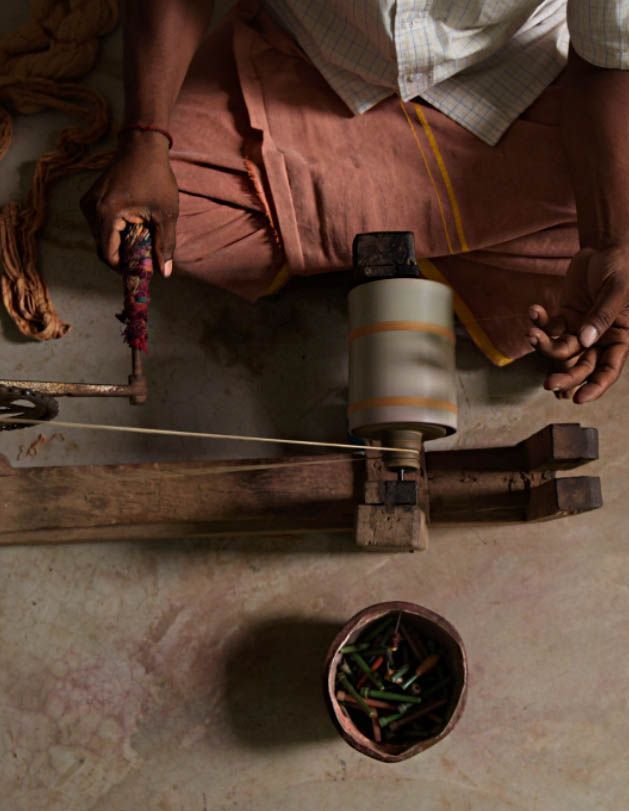
indian handloom in contemporary world
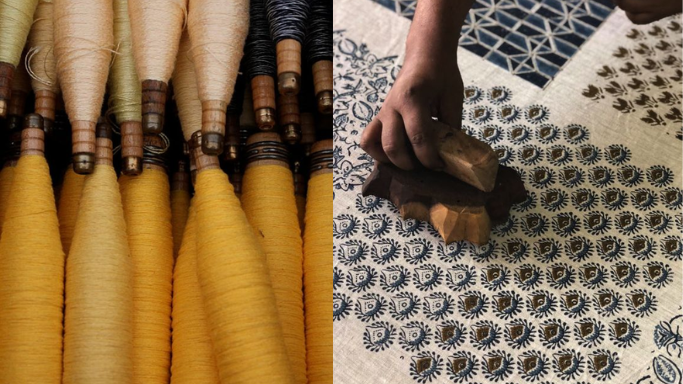
sustainability through handloom manufacturing
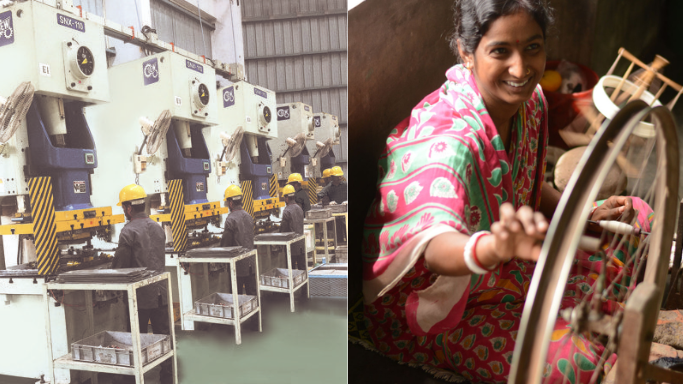
how to identify handloom fabrics in a powerloom world






